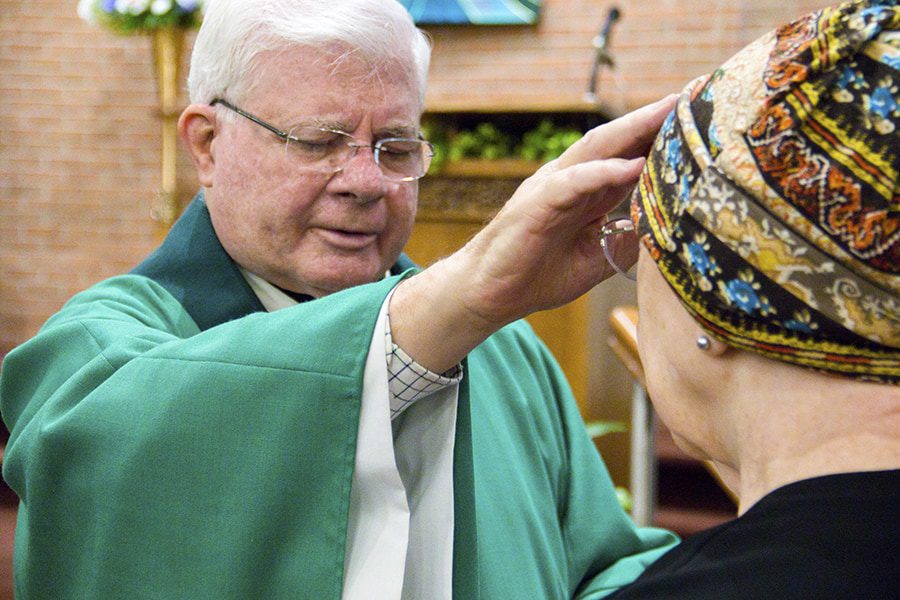“Is any among you sick? Let him call for the presbyters of the Church, and let them pray over them, anointing him with oil in the name of the Lord; and the prayer of faith will save the sick man, and the Lord will raise him up; and if he has committed sins, he will be forgiven.” (James 5: 14-15).
The Sacrament of the Anointing of the Sick was, in the past, called “Extreme Unction.” Most people mistakenly understood Extreme Unction as “in extremis,” i.e., near death, the last anointing. Actually, Extreme Unction meant the last in a series of anointings or unctions. A person was anointed at Baptism and again at Confirmation. Now this was the last in a series of anointings. We anoint many people in the hospitals when they are admitted and we anoint the elderly and shut-ins usually every few months. Those anticipating surgery of a serious nature should also be anointed.
This Sacrament confers grace and this grace unites the suffering of the sick person to the sufferings of Jesus. It strengthens the sick person with courage and peace. It forgives all sins for which the sick person has true sorrow, but was unable to con-fess. It oftentimes restores health if it is appropriate for the salvation of the sick person. It is for the sick!

This Sacrament has its foundation in the letter of St. James: “Are there any who are sick among you? Let them send for the priests of the Church, and let the priests pray over them, anointing them with oil in the name of the Lord; and the prayer of faith will save the sick persons, and the Lord will raise them up; and if they have committed any sins, their sins will be forgiven them.”
Also in danger of death, the sick person is given the Apostolic Blessing which takes away all sin and the temporal punishment due to sin. The follow-ing is the wording for that blessing: “By the authority granted me by the Apostolic See, I grant you a plenary indulgence and full remission of yours sins and I bless you in the name of the Father and of the Son and of the Holy Spirit. Amen.”
In the Church’s Sacrament of Anointing of the Sick, through the ministry of the priest, it is Jesus who touches the sick to heal them from sin – and sometimes even from physical ailment. His cures were signs of the arrival of the Kingdom of God. The core message of his healing tells us of his plan to conquer sin and death by his dying and rising.
The Rite of Anointing tells us there is no need to wait until a person is at the point of death to receive the Sacrament. A careful judgment about the serious nature of the illness is sufficient.
When the Sacrament of Anointing of the Sick is given, the hoped-for effect is that, if it be God’s will, the person be physically healed of illness. But even if there is no physical healing, the primary effect of the Sacrament is a spiritual healing by which the sick person receives the Holy Spirit’s gift of peace and courage to deal with the difficulties that accompany serious illness or the frailty of old age.
~from the United States Catholic Catechism for Adults
Times and Dates
When a family member is admitted to a hospital or becomes ill, please notify the Parish Office. We anoint many people in the hospitals when they are admitted, and we anoint the elderly and shut-ins usually every three months. Those anticipating surgery of a serious nature should also be anointed.


